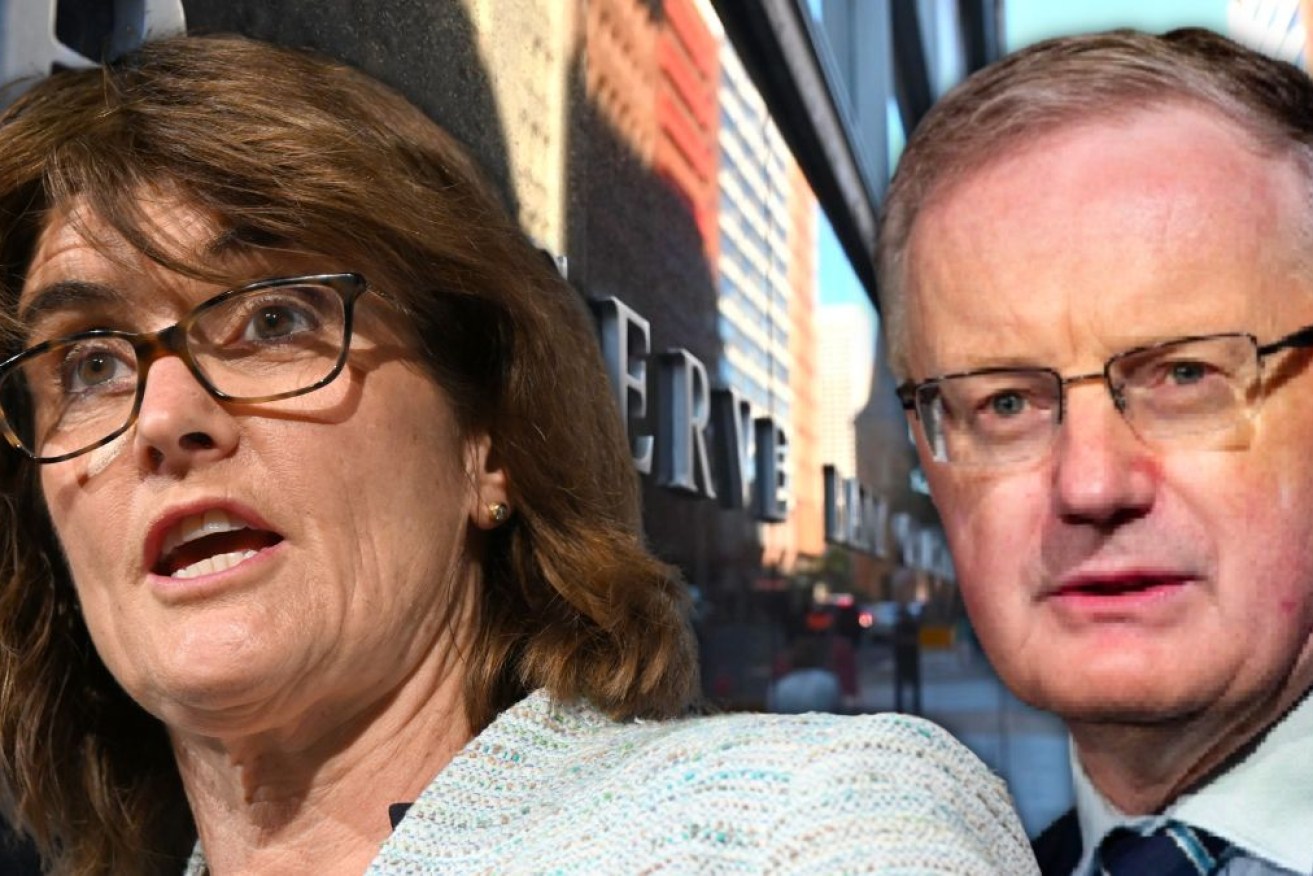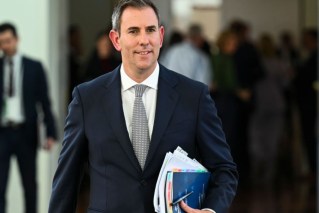Memo to RBA: To bring down inflation, we must bring down profits


RBA deputy governor Michele Bullock will take over the top job when Philip Lowe's term expires in September. Photos: Getty/AAP/TND
When Treasurer Jim Chalmers announced the appointment of Michele Bullock as governor of the Reserve Bank, he lauded her “fresh perspective”.
That’s a stretch, given that Ms Bullock has worked at the RBA since 1985. And no one expects her to change course on interest rates, which the RBA hiked 12 times since last May.
If indeed Ms Bullock brings fresh eyes to this role, let’s hope she uses them to review a broader range of the factors causing inflation – rather than focusing myopically on the dangers of wage growth, like her predecessor Dr Philip Lowe.
From the outset of the current inflation, Dr Lowe focused squarely on labour costs as the biggest worry – while rejecting that record corporate profit margins had anything to do with high prices.
For example, last month Dr Lowe warned a Sydney business audience that rising labour costs were a clear and present danger in the fight against inflation. The 3000-word speech did not mention the word “profit” once.
Previously, Dr Lowe had dismissed outright concerns that record profits for Australian corporations since 2021 were connected to the simultaneous surge in inflation.
Role of profits
In short, Philip Lowe looked only to one side of the tracks in analysing what caused inflation – and what to do about it. That put him out of step with other central banks and many international institutions.
They have produced volumes of research confirming higher profits accounted for the largest share of inflation since the pandemic.
These organisations are not wild-eyed radicals – they include the OECD, the International Monetary Fund, the US Federal Reserve, the Bank for International Settlements, the European Central Bank and the European Commission.
In Australia, studies from the Australia Institute and the Centre for Future Work confirmed the same thing happened here.
This evidence that record profits, not undue wage growth, fuelled post-COVID inflation sits uncomfortably with economic orthodoxy, which asserts by rote that inflation always results from overheated labour markets, excess demand and rising wages.
Will Ms Bullock more honestly consider this evidence, and adjust her policy approach accordingly? Her recent speech (just before being appointed Governor) claiming that unemployment must rise to reduce inflation does not inspire hope.
This is not just a matter of intellectual debate or rhetorical finger-pointing. Understanding what causes inflation is vital to properly designing the remedy.

Newly appointed RBA boss Michele Bullock with Prime Minister Anthony Albanese.
International agencies are grappling with how to shrink those record profit margins in order to both calm inflation and restore real wages (which fell sharply since 2021 in most countries, including Australia).
As ECB president Christine Lagarde recently put it, real wages can gradually recover in coming years – but only if profit margins decline.
If they don’t, she warned, and businesses hang onto unusually large profits, then interest rates must remain higher for longer, with resulting economic and social pain.
International experience is now confirming the importance of lower profits to lower inflation. In the US, for example, profits eased 8 per cent over the past six months, as inflation fell from 9 per cent to 3 per cent. Wage growth has hardly changed at all.
In Spain, an unconventional combination of policies – including price caps, excess profit taxes, and subsidies to low-income consumers and renters – has kept profits at or below historic norms. Spain’s inflation fell last month to just 1.9 per cent, the lowest in Europe.
Canada’s experience is especially relevant to Australia, since it is also a major resource exporter. Profits there surged (like Australia) to record highs as inflation took off.
They have since retreated by more than 20 per cent. Inflation has slowed in step: To 3.4 per cent at last reading. An excess profits tax on banks, and special taxes on cash payouts by energy companies, helped.
The UK experience is the polar opposite. There, profits have kept soaring as companies exploit desperate consumers and still-fractured post-Brexit supply chains. Profits grew 17 per cent in the past year, three times faster than wages. Not coincidentally, inflation remains at a painful 8.7 per cent.
Australia, unfortunately, is closer to the British end of this spectrum. Despite falling world energy and commodity prices, corporate profits grew another 13 per cent in the past year, faster than wages. The profit share of GDP remains at an all-time record high of 29 per cent. Real wages are still falling. And inflation is still high – 7 per cent last quarter.
Reducing profit margins
How do we get profit margins back down, supporting both lower inflation and a restoration of real wages?
Many policies would help: Price caps on essential products (like energy and rents), taxes on excess profits, support for wages to catch up, and limits on corporate concentration.
And some of the needed moderation in profits will likely occur naturally – for both good reasons (restoration of pandemic-damaged supply chains) and bad (looming recession).
Most of those policies are beyond the remit of the RBA, requiring instead a multi-dimensional effort across government. But so long as the RBA denies that profits are even relevant, momentum to develop and enact that broader anti-inflation agenda will be stifled.
Ms Bullock could turn over a new leaf in RBA thinking by casting her “fresh” eyes more widely over both macroeconomic data and cumulating international research.
And she should then acknowledge that the bank’s single-minded focus on suppressing wages has been neither fair, nor effective.
Jim Stanford is economist and director of the Centre for Future Work








